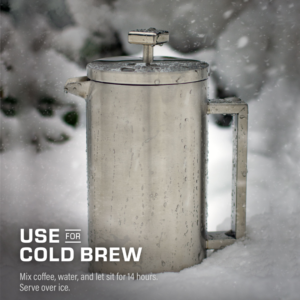The Truth About Decaf
first taste as a small child. Coffee has been a staple at gatherings of friends and family for as long as I recall. During and after college, I worked at a coffee shop—one of my favorite jobs ever. And like millions of people around the world, I can’t start my day without that first coveted cup.
My lifelong relationship with coffee comes with a disclaimer: In recent years I started drinking half-caff and even decaf. Previously I was a 2-3 cup-a-day full-caffeine drinker, but eventually less caffeine became a better choice for me. I suspect there are many coffee lovers out there who do the same.
Depending on a variety of lifestyle and biological factors, coffee can have unwanted side effects. According to the country’s top-rated hospital, the Mayo Clinic, even one cup of coffee can be too much for those particularly sensitive to it.
Why Drink Decaf?
So what’s the point of coffee without the kick?
The answer is twofold: habit and taste. If you know caffeine has an adverse effect on you, you’ve likely learned this lesson from experience. In other words, you’ve had many cups of coffee in your life.
Breaking the routine of drinking coffee can be difficult. For some—let’s say morning people, manual brewers, and artisan roasters, for instance—coffee is more a ritual than routine, and giving that up can take away a certain sense of joy that comes with the little things.
Fortunately, coffee has more to offer than just an energy boost. Whether it’s full test, half-caff, or decaf, a well-crafted cup is something to savor. While it’s impossible, thus far at least, to prevent the process of decaffeinating coffee from altering the taste, there are ways to improve the experience of drinking decaf.
The experts at Clutch Coffee list these four tips:
1. Buy good quality, freshly roasted, whole-bean coffee
2. Use more coffee
3. Grind your coffee slightly finer
4. Use hotter water
Does Decaf Have the Same Health Benefits as Regular Coffee?
Another bit of info is that removing caffeine has no apparent effect on the health benefits of coffee. Coffee, whether decaffeinated or regular, has been linked to a reduced risk of type 2 diabetes. The presence of powerful antioxidants is another benefit of either type of coffee. Antioxidants can play a role in preventing a host of illnesses.
The process of decaffeination is also a factor when it comes to coffee and health. There are a few ways to remove caffeine, including the Swiss water process, CO2, and chemical solvents. While the first two methods have that natural-is-best appeal, the chemical solvent most widely used, ethyl acetate, has been deemed safe by both the FDA and governing bodies in Europe.
Should I Switch to Decaf?
With no health issues or sensitivities that relate to drinking coffee, it’s fine to stick with regular. However, if you drink more than the recommended limit of four cups a day or find yourself craving a cup before bed, decaf wouldn’t be a bad idea. If you already know caffeine causes unwanted side effects for you, then the good news is that you can still enjoy the taste without the worry.
At the end of the day, coffee is meant to be enjoyed, and you can achieve that with or without caffeine. With a bag of your favorite beans, a quality grinder, and your preferred brewing method, sit back and savor the flavor!





